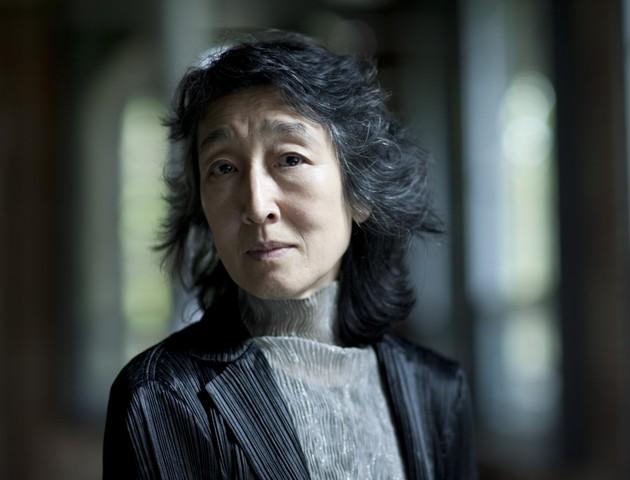Mitsuko Uchida specialises in elegant, if uncontroversial, interpretations of core Austro-German repertoire, yet she’s never predictable, and every performance is full of unexpected insights and welcome surprises. Mozart and Schumann stand at the far ends of her repertoire, and between them demonstrate what makes her playing great: In Schumann we hear subtlety of tone, gradually shifting moods and psychological depth, and in Mozart an unbridled joie de vivre, elevated, through her consummate artistry, to the highest of artistic ideals.
Mozart’s Piano Sonata in C, K 545, was really just the appetiser in this programme, with Schumann very much the main course, but Uchida made it count. Mozart himself described the work as "a little keyboard sonata for beginners", but many of the greatest pianists of modern times have taken issue – it’s technically simple, yes, but the light and open textures mean that there is nowhere to hide. Combine that with the fact the piece is so well-known, and it becomes a brave choice indeed.
In the event, Uchida rose to the challenge, making every bar of this attractive short work her own. The bell-like clarity of the first movement melody charmed, always gently propelled by the delicate left-hand accompaniments. Her daring rallentando into the return of the opening theme could have sounded contrived from lesser players, but here was utterly convincing. A flowing, but precisely-gauged legato characterised the second movement Andante, and the delicate bounce of her left-hand staccato brought an ideal sense of playfulness to the finale.
The over-riding impression was of the sheer beauty of the toneIt was surely a deliberate move to contrast the uncomplicated simplicity of the Mozart with the complex and often dour sound world of Schumann’s Kreisleriana. This is emotionally complex music, avoiding direct melodic expression in favour of dark, introverted textures. Fortunately, Uchida is able to lead her listeners through the knottiest of musical prose (her Schoenberg Concerto at last year’s Proms still lingers in the memory), inviting empathy for each new idea and emotion. Her technique is less muscular than some of this music seems to demand, but, again, she presents it on her own terms, with a rare intimacy that informs even the loudest climaxes.
The Fantasie, op. 17, which made up the second half, finds Schumann in a different mood. The music here is more open and bright, and Uchida demonstrated that this too was well within her interpretive range. In the second movement, she raised the dramatic stakes, with some of the key-thumping physicality that had been lacking in the first half. Her structural thinking here was impeccable, with the second movement rising in waves of intensity, each subtly graded in almost imperceptible crescendo. When she reached the end of the movement, that intensity seemed too much, even for her, and, in a rare moment of insecurity, the whole texture almost collapsed – a heart-in-mouth moment, but fortunately rescued in the closing moments.
That shaky patch was soon forgotten as Uchida launched into the Rondo finale. As with the Mozart, this too is famous music that any performer must make their own. Uchida did just that, with a lyrical, flowing account, again clearly structured with an ear to the long lines and connecting phrases. There was plenty of intellectual substance here, both in Schumann’s skilful writing and Uchida's sympathetic account, but the over-riding impression was of the sheer beauty of the tone, rising in great waves before gently coming to rest in the serene coda, a sublime moment to end a compelling and insightful performance.














Add comment